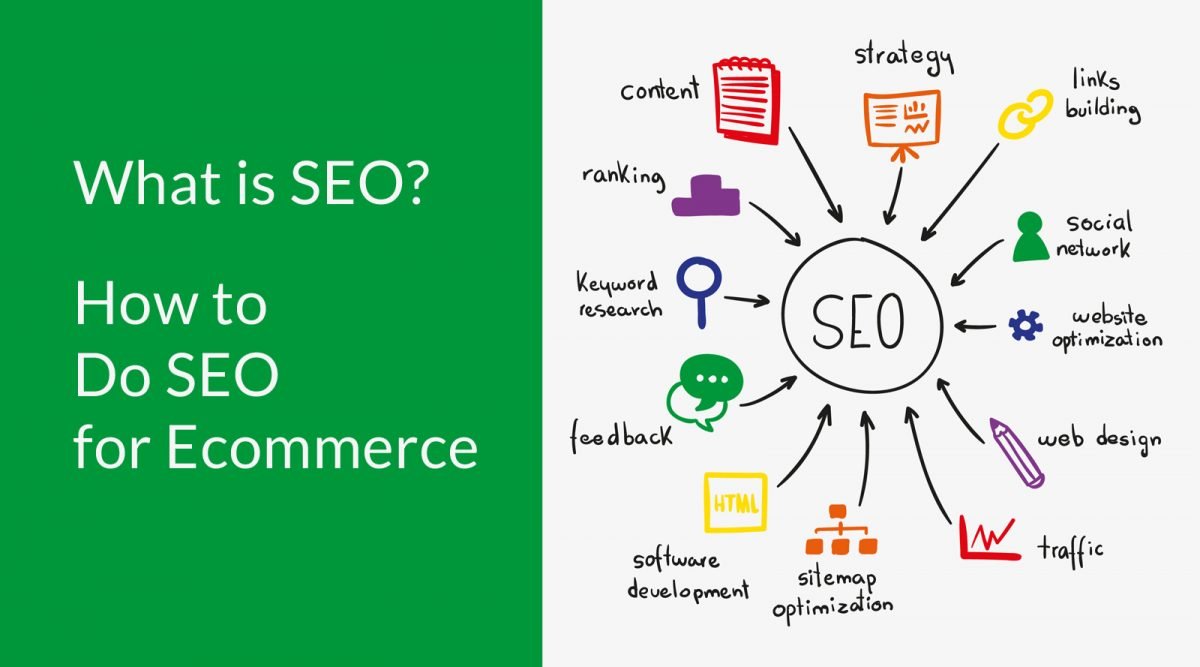The Ultimate List for Effective seo adelaide Execution in 2024
The Ultimate List for Effective seo adelaide Execution in 2024
Blog Article
Recognizing the Role of User Experience in Modern Search Engine Optimization Practices
In an age where electronic visibility can make or break a company, recognizing the crossway in between individual experience (UX) and modern-day SEO practices is a lot more important than ever. As internet search engine advance, they significantly prioritize internet sites that use seamless, engaging experiences to individuals. Components such as site rate, mobile-friendliness, and intuitive navigating are no more simple improvements; they are critical to search engine optimization success. How do these aspects precisely affect search positions? And how can organizations ensure their digital material not just meets however goes beyond progressing assumptions? These questions create the backbone of a crucial discussion.
The Advancement of SEO
For many years, the landscape of seo (SEARCH ENGINE OPTIMIZATION) has actually undertaken substantial transformation, reflecting the dynamic nature of electronic modern technology and customer actions. Originally, search engine optimization was mostly concerning keyword padding and link-building methods, focusing heavily on manipulating online search engine algorithms to improve website positions. As search engines came to be a lot more advanced, these tactics started to shed efficiency and relevance.

Additionally, mobile optimization and voice search have actually ended up being essential parts of search engine optimization strategies. With the proliferation of smartphones, making certain web sites are mobile-friendly has come to be a need. Voice search, driven by online assistants like Siri and Alexa, has actually even more changed SEO practices in the direction of natural language handling and conversational web content.
Essentially, the development of search engine optimization reflects a wider pattern in the direction of improving customer complete satisfaction by lining up electronic content with the nuanced expectations of contemporary customers.
Key UX Aspects in SEO
In the realm of search engine optimization, key user experience (UX) aspects are essential for enhancing both user contentment and search engine positions. Central to this is the convenience of navigating, which makes certain customers can with ease locate details without unneeded clicks. A well-structured navigating system allows online search engine to index pages more efficiently, contributing to higher visibility. In addition, mobile responsiveness is essential in today's electronic landscape, as a considerable part of web traffic stems from mobile phones. Internet sites maximized for mobile use not only foster a smooth individual experience but also straighten with Google's mobile-first indexing technique.
Another essential UX component is compelling content format. Material should exist in a fashion that is both aesthetically appealing and simple to absorb. This includes the strategic use of headings, bullet points, and multimedia elements, which can boost individual engagement and reduce bounce prices. Clear call-to-action (CTA) switches assist individuals in the direction of preferred actions, enhancing conversion prices. Accessibility can not be ignored; making certain that content is obtainable to users with specials needs broadens reach and complies with web standards. Integrating these UX aspects efficiently supports search engine optimization initiatives by promoting user retention and assisting in online search engine understanding of website content.
Effect of Website Speed
While usually underestimated, the impact of website rate on customer experience and search engine optimization can not be overemphasized. In today's hectic digital environment, customers anticipate websites to load promptly and successfully. Google has actually identified this need, integrating website speed as a critical ranking consider its search algorithms. A slow-loading web site can cause raised bounce rates, as customers are likely to abandon a website if it takes greater than a couple of seconds to tons. This not only influences individual engagement yet additionally decreases the website's presence in search engine results pages (SERPs)
In addition, site speed straight influences conversion prices and customer complete satisfaction. By attending to these technological facets, websites can enhance their speed, thus enhancing user experience and increasing their SEO performance. Ultimately, investing in website rate is spending in both client contentment and search engine visibility, important components in the digital market.
Mobile-Friendliness Relevance
Adapting to mobile-friendliness has actually ended up being an important component of efficient SEO techniques. As smart phones increasingly dominate net use, internet search engine like Google have actually moved towards mobile-first indexing, meaning the mobile version of a site is focused on in ranking formulas (seo adelaide). Mobile-friendliness is not merely a pattern but a necessity in enhancing a site's search engine performance

As users commonly look for regional info on-the-go, having a mobile-optimized website enhances exposure in regional search outcomes, driving foot traffic and conversions for companies. Web sites that fall short to prioritize mobile-friendliness risk losing out on useful website traffic, as users are much less most likely to involve with sites that are tough to browse on their mobile gadgets.
Enhancing Navigating for Search Engine Optimization
As companies acknowledge the need of mobile-friendliness in search engine optimization, an additional pivotal aspect emerges: enhancing navigation - seo adelaide. Effective navigation is important as it straight affects individual address experience (UX), which online search engine anchor significantly focus on. A well-structured internet site ensures that users can quickly discover the material they are trying to find, lowering bounce rates and boosting dwell time, both of which are critical SEO metrics
To improve navigating, web sites have to take on a logical pecking order that overviews users perfectly with material. This includes clear, concise food selection tags and an instinctive layout, which collectively improve the individual trip. Using breadcrumb routes can additionally help users in recognizing their place within a web site, promoting a feeling of alignment and control.
Making certain navigation is responsive across tools guarantees that individuals appreciate a regular experience, important in today's multi-device globe. Inevitably, boosting navigating is not merely regarding looks; it is a strategic method to enhancing both individual involvement and search engine efficiency.
Conclusion
Including individual experience into modern Search engine optimization methods is critical for optimizing search engine positions and boosting site performance. As search engines prioritize user intent, crucial elements such as website rate, mobile-friendliness, and user-friendly navigation play an important role in meeting user assumptions.
In the world of search engine optimization, vital individual experience (UX) elements are critical for improving both user satisfaction and search engine positions. Integrating these UX aspects effectively sustains SEO initiatives by promoting individual retention and facilitating search engine understanding of website content.
As individuals often look for click to read more local details on-the-go, having a mobile-optimized site improves presence in local search outcomes, driving foot traffic and conversions for services.Including user experience right into modern-day SEO methods is paramount for maximizing search engine rankings and enhancing website efficiency. As search engines prioritize user intent, essential elements such as site rate, mobile-friendliness, and instinctive navigation play a crucial duty in conference user assumptions.
Report this page